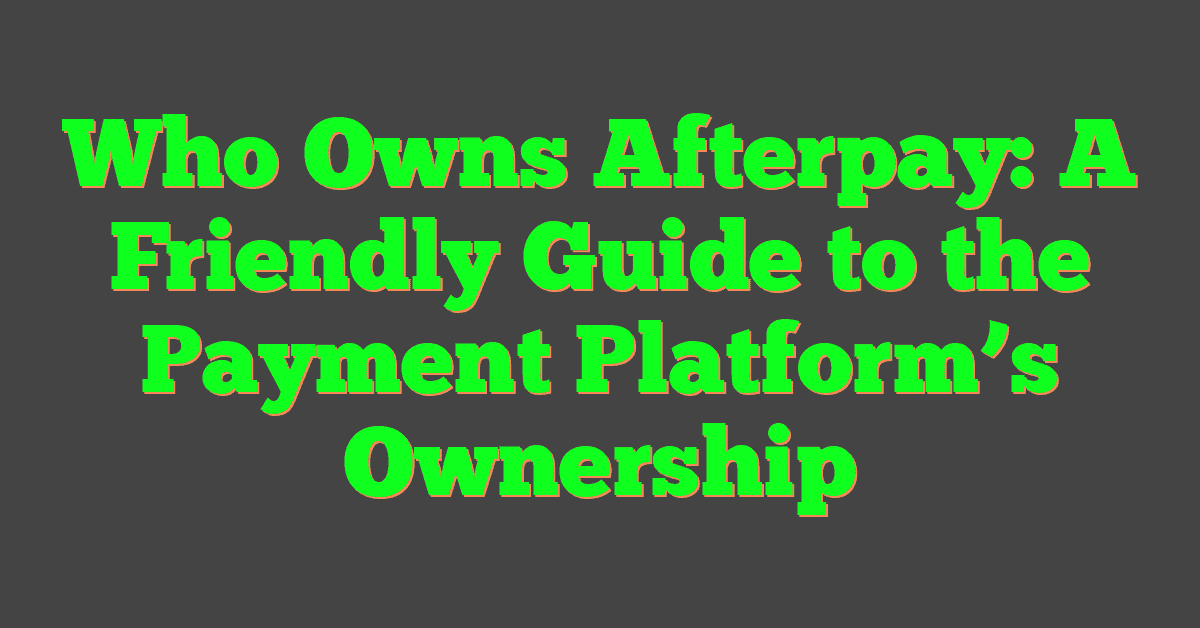The Beatles created some of the most iconic songs in music history, but the ownership of their music rights has followed a winding and sometimes surprising path. When John Lennon and Paul McCartney began writing together, they had no idea their songs would become valuable assets fought over by major corporations and celebrities for decades. Today, Sony Music Publishing controls the rights to most Beatles songs. Paul McCartney has also regained ownership of certain Lennon-McCartney compositions through a long legal process.

The journey of Beatles music ownership includes many unexpected twists, including Michael Jackson’s purchase of the ATV music catalog in the 1980s, which contained many Beatles hits. This move famously strained Jackson’s friendship with McCartney. The catalog later merged with Sony to create Sony/ATV, which now holds the publishing rights to most of the band’s work, while some early songs had different ownership arrangements.
Key Takeaways
- Sony Music Publishing currently holds rights to most Beatles songs, though Paul McCartney has regained ownership of certain compositions.
- The Beatles catalog changed hands multiple times, including a controversial purchase by Michael Jackson before eventually becoming part of Sony.
- Music ownership rights differ between publishing, recording, and performance, creating a complex web of control over the legendary band’s creations.
Evolution of Beatles Song Rights
The journey of The Beatles’ song rights is quite complex and has changed hands multiple times over the decades. This fascinating saga involves key players like Paul McCartney, John Lennon, and various music publishing companies.
Origin of Publishing Rights
Back when The Beatles were just starting out, music publishing rights weren’t a top concern for the young band members. In the early 1960s, Paul McCartney and John Lennon wrote songs together, creating what would become some of the most valuable musical compositions in history.
The pair didn’t fully understand the importance of publishing rights at first. These rights determine who earns money when songs are played, recorded by other artists, or used in movies and commercials.
Most young musicians of that era had little business knowledge, and The Beatles were no exception. Their manager Brian Epstein helped them navigate their early career but lacked experience in music publishing complexities.
The Creation of Northern Songs
In 1963, Beatles manager Brian Epstein and publisher Dick James formed Northern Songs to handle the band’s publishing. McCartney and Lennon each received 20% of the company, while Epstein got 10% and James took 50%.
This arrangement gave them some ownership but not control. When Northern Songs went public in 1965, their stake was diluted further. The Beatles couldn’t block business decisions they disagreed with.
After Epstein died in 1967, the band’s relationship with James soured. In 1969, James sold his Northern Songs shares to ATV Music without telling McCartney or Lennon. The Beatles tried but failed to buy back control of their songs.
This loss of their musical legacy deeply frustrated McCartney and Lennon. It was their first major business setback.
Transition to ATV Music Publishing
In 1969, when Northern Songs was sold to ATV Music Publishing, The Beatles lost their chance to regain control of their catalog. This marked a significant turning point in the ownership journey of their music.
ATV held the publishing rights throughout the 1970s and into the early 1980s. During this period, McCartney began acquiring music rights for other artists, showing his growing understanding of music publishing’s value.
In 1981, ATV was put up for sale. Paul McCartney considered buying the catalog but thought the $40 million asking price was too high. This created an opportunity for others to step in.
In a surprising twist, Michael Jackson purchased ATV in 1985 for $47.5 million after McCartney had explained to him the value of owning publishing rights. This purchase strained their friendship and began the next chapter in the Beatles catalog saga.
ATV Music Publishing and Michael Jackson
The ownership of the Beatles catalog took a dramatic turn when Michael Jackson entered the picture. His acquisition of ATV Music Publishing in the 1980s forever changed the landscape of music publishing rights and created a complex business relationship that would eventually involve Sony.
Michael Jackson’s Acquisition
Michael Jackson purchased ATV Music Publishing in 1985, gaining control of a treasure trove of musical assets. The catalog included 251 Beatles songs with classics like “Hey Jude,” “Yesterday,” and “Let It Be,” along with thousands of other valuable compositions.
The purchase price was around $47.5 million, which turned out to be an incredible investment. Many people don’t realize that Jackson didn’t buy “The Beatles catalog” specifically – he bought half of ATV publishing, which included the Beatles songs among many others.
This acquisition created tension with Paul McCartney, who had previously advised Jackson about the value of music publishing. McCartney was reportedly upset when Jackson purchased the rights to his own music.
The Partnership With Sony
A decade after acquiring ATV, Michael Jackson made another strategic move. In 1995, he sold 50 percent of ATV to Sony for $95 million, creating Sony/ATV Music Publishing.
This partnership was significant in the music industry, with Jackson and Sony each owning 50% of the company. The deal allowed Jackson to double his initial investment while retaining half ownership of the valuable catalog.
The joint venture became one of the world’s largest music publishing companies. After this deal, Michael Jackson earned publishing royalties from the Beatles catalog only until the Sony partnership was formed, after which the royalties were shared.
The Sony/ATV partnership would continue to evolve even after Jackson’s death in 2009, eventually leading to further changes in the ownership structure of the Beatles catalog.
Paul McCartney and Sony/ATV
Paul McCartney fought a long legal battle with Sony/ATV over the rights to Beatles songs. The dispute highlights the complex nature of music publishing rights and the challenges artists face in reclaiming ownership of their work.
McCartney’s Legal Battle
In January 2017, Paul McCartney filed a lawsuit against Sony/ATV in a New York court. His goal was clear – he wanted to regain his ownership stake in the Beatles catalog.
The lawsuit was based on U.S. copyright law, which allows songwriters to reclaim rights to their work after a certain period. McCartney was trying to use this provision to get back the rights to songs he wrote with John Lennon.
Interestingly, McCartney had been outbid by Michael Jackson in 1985 for these same song rights. Jackson later merged his catalog with Sony to create Sony/ATV, which is why McCartney had to fight the music publishing giant.
Subsequent Developments
In July 2017, McCartney and Sony/ATV reached a settlement in their dispute. The exact terms weren’t made public, but it appears McCartney finally achieved his goal of reclaiming his Beatles copyrights.
This victory came after more than 50 years of what some call a bizarre history of publishing royalties struggles for McCartney. The settlement marked the end of a long journey for the legendary musician.
The deal allowed McCartney to attain his share of publishing rights under U.S. revision law, while Lennon’s rights remained with Sony/ATV. This resolution gave McCartney more control over how Beatles songs are used commercially.
The Role of Apple Corps

Apple Corps stands as a crucial entity in the Beatles’ business empire, controlling key aspects of their musical legacy. Founded by the band members themselves, this company continues to oversee important parts of the Beatles catalog and related media productions.
Beatles’ Record Label
The Beatles launched Apple Records in 1968 as their own recording outlet. This label wasn’t just for their music – it represented creative freedom for the band and many other artists they signed.
Apple Corps Limited was founded in London as a multi-armed multimedia corporation. It gave the Beatles control over their artistic output during a time when musicians rarely had such power.
The company is significant because it owns rights to all Beatles videos and movie clips. This means whenever you see official Beatles footage, Apple Corps is likely involved in the licensing.
Beyond recordings, Apple Corps oversees several subsidiaries including Apple Films, Python Music, and Apple Show, handling different aspects of the Beatles’ creative legacy.
Divergence of Interests
The relationship between Apple Corps and Apple Computer (now Apple Inc.) has been complicated. The Beatles’ company sued the tech giant for trademark infringement, as both shared the “Apple” name.
This conflict highlighted how the Beatles’ business interests expanded beyond just music. Apple Corps protected the band’s intellectual property across multiple industries.
While EMI (now part of Universal Music Group) manufactured and distributed Beatles recordings for years, Apple Corps maintained control over how the catalog was used. This arrangement gave the Beatles unusual influence over their work.
The company now manages various Beatles-related business ventures. This includes merchandise, special releases, and partnerships that continue the band’s legacy for new generations of fans.
Key Beatles Songs and Their Ownership

The ownership of Beatles songs has changed hands multiple times over decades, affecting how royalties flow for some of their most famous works. The paths of iconic tracks show how complex music rights can be in the industry.
Iconic Tracks ‘Yesterday’ and ‘Love Me Do’
‘Yesterday’ is often called the most covered song in history. Paul McCartney wrote it, but for many years he didn’t own the publishing rights. When Northern Songs became a public company in 1965, McCartney and Lennon each owned only 15% stake in their own songs.
‘Love Me Do’, the Beatles’ first single, faced similar ownership issues. The song was originally published under Northern Songs, controlled mostly by Dick James with Lennon and McCartney each owning 20%.
After many legal battles and ownership changes through Michael Jackson and Sony/ATV, Paul McCartney finally began reclaiming his rights. Today, McCartney and Sony/ATV share publishing rights to these iconic tracks.
The recordings themselves (master rights) belong to Apple Records, which is jointly owned by McCartney, Starr, and the estates of Lennon and Harrison.
Impact of Ownership on Music Industry
The ownership of the Beatles catalog has profoundly shaped how music publishing rights are valued and managed in the entertainment industry. The high-profile battles over these iconic songs have set precedents that continue to influence artists and publishers today.
Influence on Music Publishing Standards
The changing ownership of the Beatles catalog has raised awareness about the importance of artists controlling their own work. When Michael Jackson purchased the Beatles catalog for $47.5 million in the 1980s, it shocked the music world and created tension with Paul McCartney.
This high-profile acquisition highlighted how valuable publishing rights could become. Many artists since then have fought harder to maintain ownership of their music from the beginning of their careers.
The Beatles case also demonstrated how commercialization can affect artistic legacy. After Jackson’s purchase, Beatles songs began appearing in advertisements, something McCartney strongly opposed. This sparked industry-wide debates about balancing commercial interests with artistic integrity.
Today, Sony Music Publishing controls the rights to most Beatles songs. This shows how corporate entities continue to recognize the immense value in legendary music catalogs.




